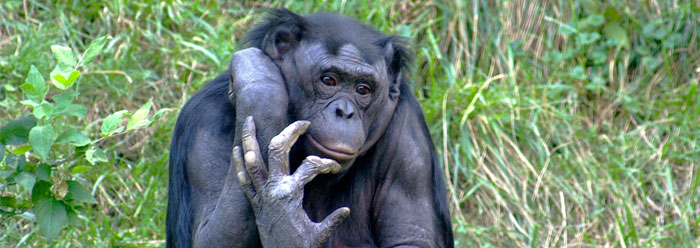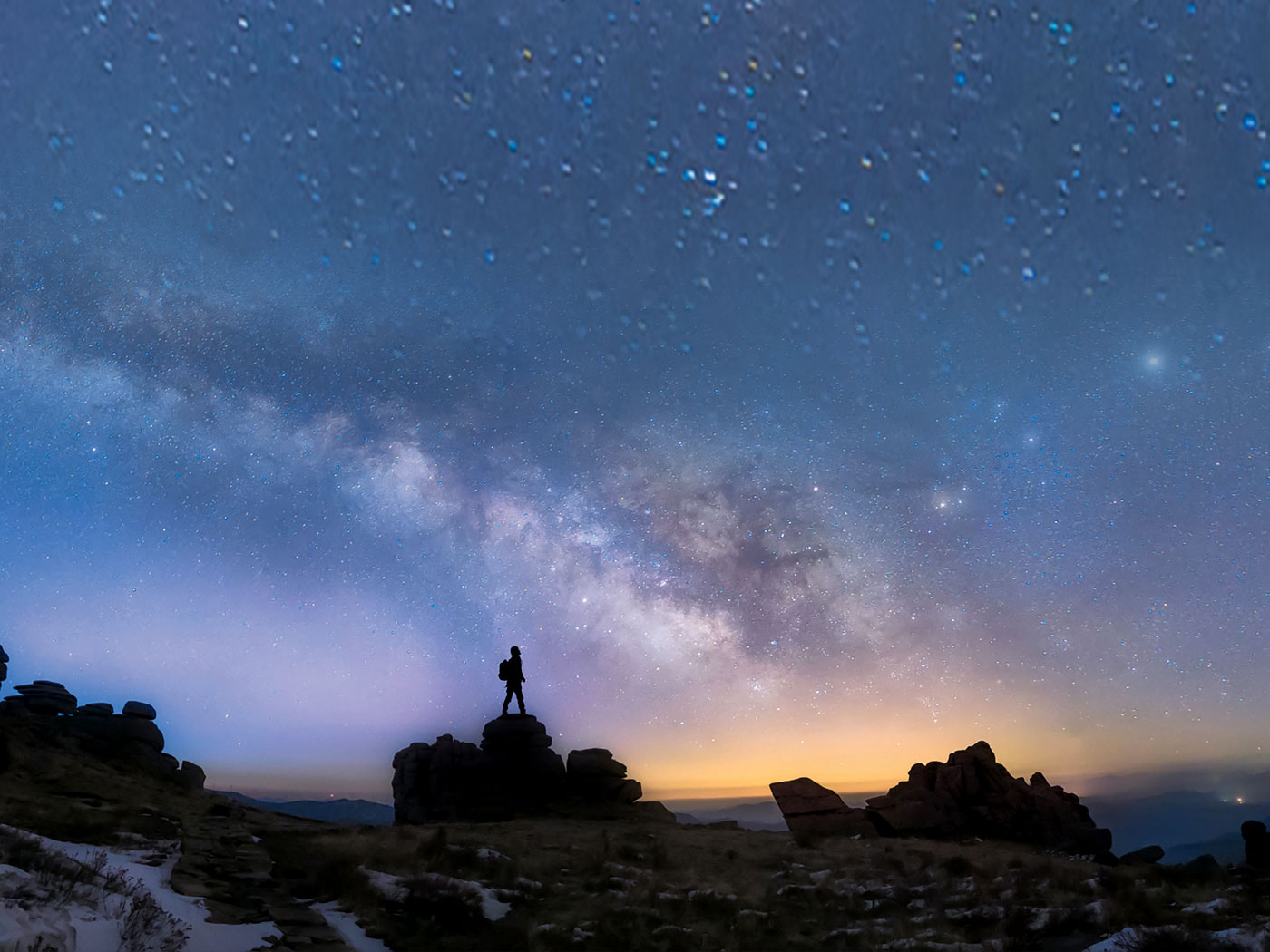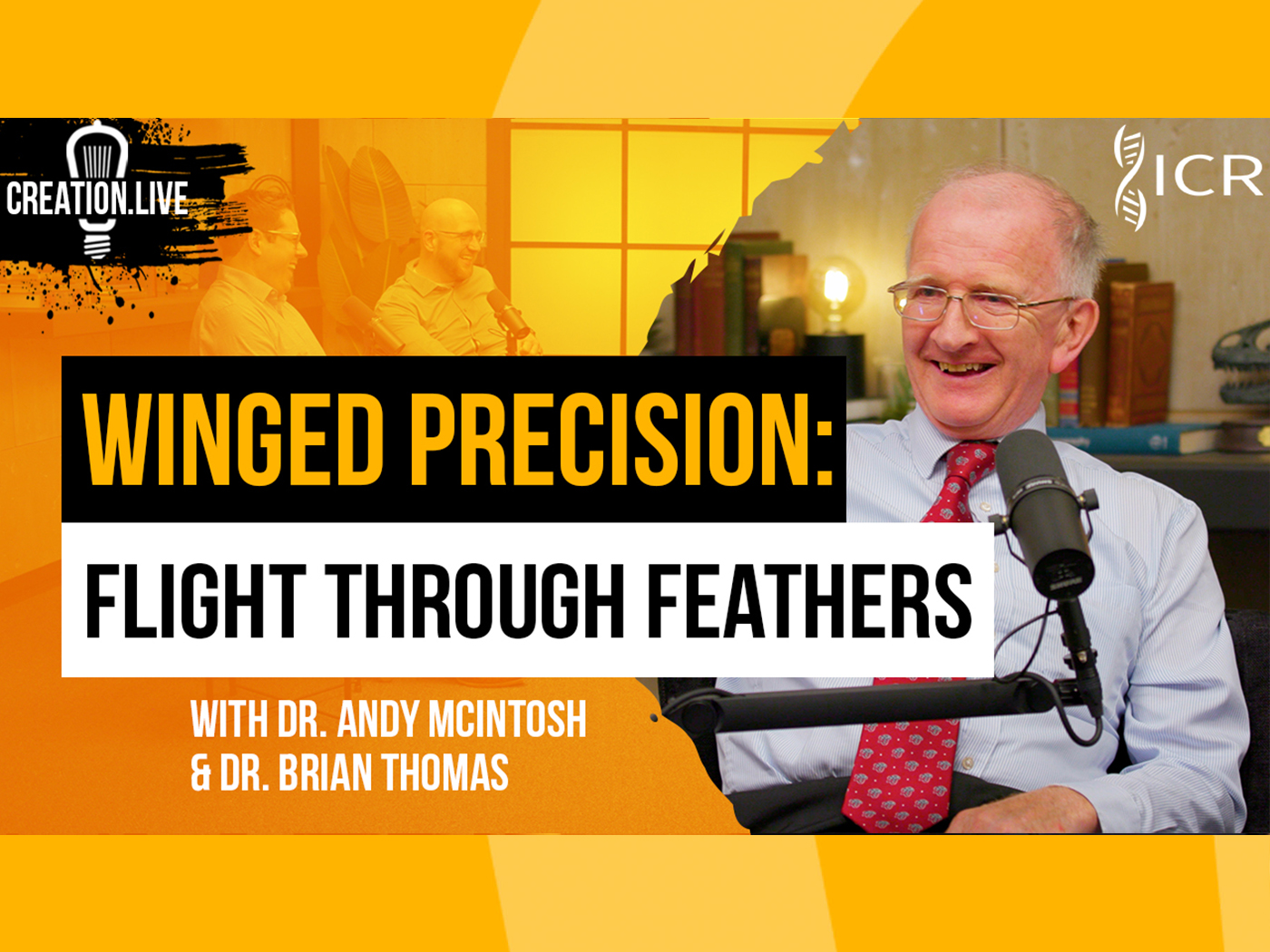Bonobos are chimpanzee-like primates, native to areas south of the Congo River, that have traditionally been regarded as more peaceful than chimpanzees. Chimps hunt and maim other arboreal monkeys, and it was assumed that bonobos did not. After following a family of bonobos for five years, however, a team of researchers observed behaviors that had not previously been witnessed. And what they saw was violence.
They found that the bonobos, like chimpanzees, engaged in “hunting of diurnal, arboreal and group living primates,”1 which stands “in contrast to previous assumptions.”2 Evolutionary theory holds that chimpanzees and bonobos diverged between three and eight million years ago. A biblical history would interpret these species as being descendants of a common chimpanzee (genus Pan) kind. They show some differences between each other, but only within their created kind. And a biblical theology, informed by the sin-caused curse described in Genesis 3, would expect the monkey violence that has been observed.
In the evolutionary scenario, violence is a natural process in the struggle for survival, a struggle that is supposedly responsible for the onward and upward progression of life. The fossil record reflects a history of violence—but is it the “survival of the fittest” violence required by evolution? Not only do the fossils not reflect simple-to-complex developmental progression, but their very preservation required rapid burial and water-mediated mineral replacement. The best interpretation of the evidence points to a massive die-off of the world’s creatures caused by a watery global cataclysm.3
Interpreting both bonobos and fossils in the light of God’s Word reveals that violence, even among animals, is the consequence of a world that was created to be “very good” but then came under God’s judgment because of humanity’s rebellion. When sin entered the world, so did death, corruption, and decay.4 Thankfully, the Bible promises that one day the nonviolent world will be restored when the good purposes of God have been fulfilled.5
References
- Surbeck, M., and G. Hohmann. 2008. Primate hunting by bonobos at LuiKotale, Salonga National Park. Current Biology. 18 (19): R906-907.
- Despite 'Peacenik' Reputation, Bonobos Hunt And Eat Other Primates, Too. Science News. Posted on ScienceDaily.com October 14, 2008, accessed October 14, 2008.
- Morris, J. 2004. Are Fossils the Result of Noah’s Flood? Acts & Facts. 33 (11).
- Morris, H. 1998. The Fall, the Curse, and Evolution. Acts & Facts. 27 (4).
- Isaiah 11:6-9.
Photo taken by Kabir Bakie at the Cincinnati Zoo May 2005.
* Mr. Thomas is Science Writer.
Article posted on October 28, 2008.



















